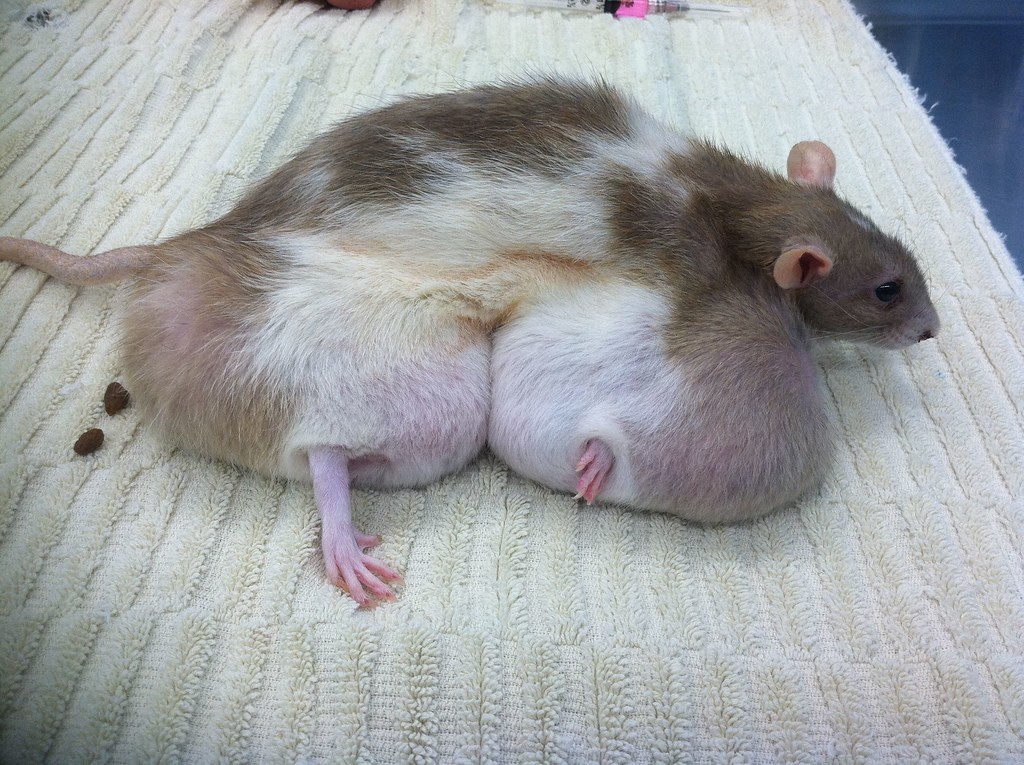A gerbil with a tumor can live for varying lengths, with some living for just a few weeks and others surviving for several months.

Credit: www.rodentzone.com
Understanding Gerbil Tumors
Gerbil tumors can be a cause for concern among gerbil owners. These abnormal growths can significantly impact a gerbil’s health and lifespan. In this section, we will delve deeper into what gerbil tumors are, the different types that can affect gerbils, as well as the symptoms to watch out for.
What Is A Gerbil Tumor?
A gerbil tumor refers to an abnormal mass of cells that grow uncontrollably. Tumors can affect various parts of a gerbil’s body, including the skin, organs, glands, or even the bones. These growths can be benign (non-cancerous) or malignant (cancerous). Understanding the nature of the tumor is crucial in determining the appropriate course of action for your gerbil’s well-being.
Types Of Gerbil Tumors
Several types of tumors can develop in gerbils. They include:
- Adenomas: These are benign tumors that typically arise from glandular tissue. Examples include mammary adenomas and scent gland adenomas.
- Squamous cell carcinomas: These are malignant tumors commonly found in the skin. They often appear as ulcers or sores on different parts of the gerbil’s body.
- Hepatocellular carcinoma: This is a malignant tumor that affects the liver. It can cause liver dysfunction and significantly impact the gerbil’s overall health.
- Adrenal gland tumors affect the adrenal glands, disrupting the hormonal balance in gerbils.
- Ovarian tumors: These tumors can affect female gerbils and may lead to reproductive issues and discomfort.
Symptoms Of Gerbil Tumors
Identifying the symptoms of gerbil tumors is crucial for early detection and treatment. Common signs include:
- Visible lumps or growths on the body, especially in the ventral marking glands, ears, or feet
- Unexplained weight loss or reduced appetite
- Changes in behavior or activity levels
- Bleeding, discharge, or sores on the skin
- Difficulty breathing or an altered respiratory rate
- Lameness or difficulty moving
If you notice any of these symptoms in your gerbil, it is essential to consult a veterinarian with experience in exotic pet care. They can help provide an accurate diagnosis and recommend appropriate treatment options based on the type and severity of the tumor.

Credit: www.flickr.com
Impact On Gerbil Lifespan
Gerbils with tumors, particularly in the scent gland, may experience pain, soreness, and irritation, leading to self-trauma and infections. The lifespan of a gerbil with a tumor can vary, but monitoring their health and providing appropriate care to keep them comfortable is essential.
Treatment Options For Gerbil Tumors
Treatment options for gerbil tumors vary depending on the severity and location of the cancer. In some cases, surgery may be possible to remove the tumor and improve the gerbil’s quality of life. However, if the cancer is inoperable or the gerbil is nearing the end of its natural lifespan, managing symptoms and providing comfort care may be the best course of action.
Surgical Removal Of Gerbil Tumors
One of the most effective treatment options for gerbil tumors is surgical removal. This involves surgically excising the cancer from the gerbil’s body. The procedure is typically performed under general anesthesia by a veterinarian experienced in minor animal surgeries. The veterinarian will carefully remove the tumor during the surgery while minimizing damage to surrounding tissues. Surgical removal is often recommended for larger tumors or sensitive areas like the scent gland.
Non-surgical Treatment Options
If surgical removal is not feasible or the tumor is inoperable, there are non-surgical treatment options available for gerbils with tumors. These treatments focus on alleviating the symptoms and making the gerbil comfortable. Your veterinarian may prescribe medications to manage pain or reduce inflammation associated with the cancer. Additionally, supportive care, such as maintaining a clean and comfortable environment, providing adequate nutrition, and ensuring proper hydration, can also help improve the gerbil’s overall well-being.
Cost Considerations
Cost is an essential factor when considering treatment options for gerbil tumors. Surgical removal of tumors typically incurs higher costs due to the need for anesthesia, surgical supplies, and post-operative care. Non-surgical treatment options involving medication and supportive care may be relatively more cost-effective. However, discussing the financial implications with your veterinarian is essential to ensure you can provide the best possible care for your gerbil within your budget.

Credit: www.rodentzone.com
Frequently Asked Questions On How Long Can A Gerbil Live With A Tumor
What Do I Do If My Gerbil Has A Tumor?
If your gerbil has a tumor, it is essential to consult a veterinarian for proper diagnosis and treatment. Tumors in gerbils can cause pain and discomfort, so seeking professional help is crucial. Do not attempt to treat the cancer at home.
What Does A Tumor Look Like On A Gerbil?
Tumors on a gerbil may look like sores in its ventral marking glands or large masses on its body, including the ears and feet. They can cause pain, soreness, and irritation, leading to self-trauma and potential infections. It’s best to consult a veterinarian for appropriate treatment options.
Does A Scent Gland Tumor Hurt The Gerbil?
Scent gland tumors in gerbils can cause pain, soreness, and irritation, which may lead to self-trauma and infection.
What Is The Life Expectancy Of A Gerbil?
The life expectancy of a gerbil is 3-4 years.
Conclusion
Tumors in gerbils can have varying effects on their lifespan, depending on the type and location of the tumor. While some tumors may not cause immediate harm, others can lead to pain and self-trauma. If a gerbil has cancer, it’s essential to consult a veterinarian to discuss potential treatment options and assess the gerbil’s overall quality of life.
Remember, early detection and treatment can significantly improve the chances of a gerbil living longer and healthier.

